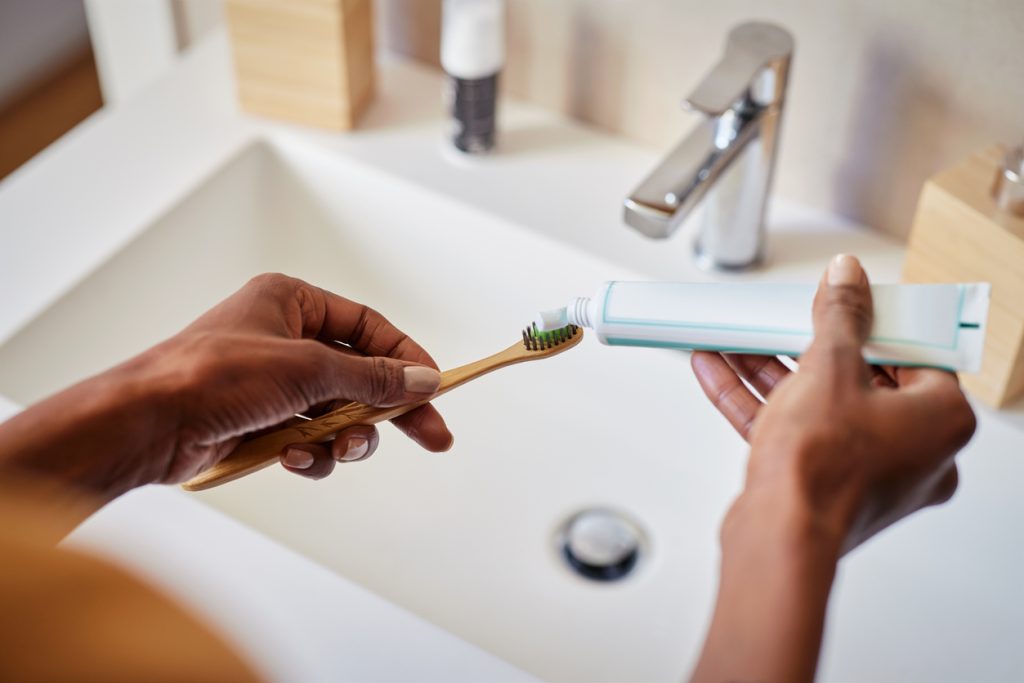
What Causes Changes in Your Oral Health During Menopause?
When discussing menopause symptoms, hot flushes and mood changes often take centre stage. However, the impact of hormonal changes during menopause extends to every part of your body – including your mouth. Understanding how menopause affects your oral health can help you maintain a healthy smile throughout this transition.
What happens to oral health during menopause?
The dramatic shifts in hormone levels, particularly the decline in oestrogen, can trigger various changes in your oral health. Oestrogen plays a crucial role in maintaining healthy bones, including your jaw, and supporting the health of oral tissues. As these hormone levels decrease during menopause, you might notice several changes in your oral health.
Understanding common oral symptoms
During menopause, many women experience a range of oral health changes that can impact both comfort and dental health. Some of the most common symptoms include:
Dry mouth (xerostomia) often becomes more prevalent during menopause. This condition occurs when salivary glands produce less saliva, leaving your mouth feeling persistently dry and uncomfortable. Beyond discomfort, reduced saliva production can increase your risk of tooth decay, as saliva plays a vital role in neutralising acids and washing away food particles.
Burning mouth syndrome can develop, causing a burning or scalding sensation that might affect your tongue, lips, gums, or entire mouth. This condition can be particularly distressing, often accompanied by changes in taste and increased sensitivity to certain foods and drinks.
Gum sensitivity and inflammation may increase during menopause. Your gums might become more prone to bleeding, feel tender, or appear redder than usual. This heightened sensitivity can make regular oral hygiene routines uncomfortable, but maintaining good oral care becomes more crucial than ever.
The bone health connection
One of the most significant impacts of menopause on oral health relates to bone density. The decrease in oestrogen levels can affect bone density throughout your body, including your jaw bone. This change can lead to:
- Increased risk of periodontal disease
- Greater likelihood of tooth loss
- Changes in how dental implants or dentures fit
- Potential need for more frequent dental adjustments
Protecting your oral health
Taking proactive steps to maintain your oral health during menopause can help minimise these impacts:
Maintain excellent oral hygiene practices, including regular brushing with a soft-bristled brush, daily flossing, and using alcohol-free mouthwash Schedule regular dental check-ups to monitor any changes in your oral health Stay hydrated to help combat dry mouth symptoms Consider sugar-free gum or lozenges to stimulate saliva production Discuss calcium and vitamin D supplementation with your healthcare provider to support bone health
When to seek professional help
While some oral changes during menopause are normal, certain symptoms warrant immediate attention from your dental professional:
Persistent pain or discomfort
Bleeding that doesn’t improve with good oral hygiene Loose teeth or changes in how your teeth fit together Sores that don’t heal within two weeks
Treatment options
Your healthcare provider might recommend various approaches to managing oral health during menopause:
Prescription medications for dry mouth or burning mouth syndrome Hormone therapy, which may help alleviate some oral symptoms Specialised dental products designed for sensitive teeth and gums Regular professional cleanings and monitoring
The role of nutrition
Maintaining good nutrition becomes particularly important during menopause. A diet rich in calcium, vitamin D, and protein can help support both bone health and overall oral health. Including plenty of fresh fruits and vegetables can also help maintain healthy gums and teeth.
Conclusion
While menopause can bring significant changes to your oral health, understanding these changes and taking proactive steps to protect your dental health can help maintain your smile throughout this transition. Regular dental care, good oral hygiene practices, and appropriate interventions when needed can help manage these changes effectively.
Looking for more support with your menopause symptoms? Speak with the team at the Australian Menopause Centre to discover our holistic treatment pathways. We’re here to support you through every aspect of your menopause journey.
References:
Dutt P, Chaudhary S, Kumar P. Oral Health and Menopause: A Comprehensive Review on Current Knowledge and Associated Dental Management. Annals of Medical and Health Sciences Research. 2016;6(1):8-12.
Suri V, Suri V. Menopause and oral health. Journal of Mid-life Health. 2014;5(3):115-120.
Tarkkila L, Linna M, Tiitinen A, et al. Oral symptoms at menopause-the role of hormone replacement therapy. Oral Surgery, Oral Medicine, Oral Pathology, Oral Radiology, and Endodontology. 2012;103(1):92-96.
Yoshida N, Sugimoto K, Suzuki S, Kudo H. Change in oral health status associated with menopause. Japanese Dental Science Review. 2018;54(2):52-58.
Mutneja P, Dhawan P, Raina A, Sharma G. Menopause and the oral cavity. Indian Journal of Endocrinology and Metabolism. 2017;16(4):548-551.